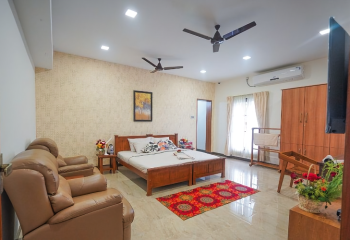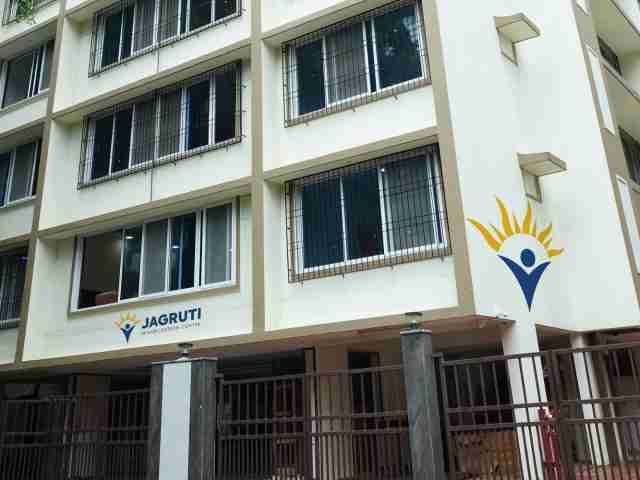More About Treatment Centers for Personality Disorders
Personality disorders are complex, psychological conditions that can impact how you think and behave, often leading to impaired relationships with others and distress in your life. Someone with a personality disorder may display behaviors that vary from typical cultural expectations that last over time.
These disorders offer a window into the intricate workings of the mind, highlighting the diverse ways in which individuals perceive and interact with the world around them. According to the DSM-5, there are 10 existing personality disorders that fall into 3 separate clusters (categories).
Cluster A Personality Disorders
Cluster A disorders share a common thread of odd or eccentric behaviors, such as social withdrawal, distrust, unusual beliefs, and difficulty forming and maintaining relationships.
- Paranoid personality disorder - characterized by a pervasive distrust and suspicion of others, resulting in misinterpretation of innocent actions, hypervigilance, and a sense of being on guard for potential harm
- Schizoid personality disorder - characterized by a general preference for solitude and a limited capacity for emotional expression, causing one to appear detached or apathetic and find little pleasure in social interactions
- Schizotypal personality disorder - characterized by peculiar or eccentric behavior along with cognitive distortions, including odd beliefs and ways of speaking or expressing themselves, often alongside social anxiety
Cluster B Personality Disorders
Cluster B disorders are known as the dramatic, emotional, or erratic cluster, sometimes exhibiting behaviors of violence or aggression.
- Antisocial personality disorder- characterized by the dismissal of the rights of others and a lack of empathy and remorse, often displaying impulsive and irresponsible behavior and violating social norms or laws
- Borderline personality disorder - characterized by emotional instability, impulsivity,fear of abandonment, low self-esteem, frequent mood swings, self-destructive behaviors, and unstable relationships
- Histrionic personality disorder- characterized by excessive attention-seeking behavior, a constant desire for validation, intensely exaggerated emotions, and flamboyant behaviors to gain attention
- Narcissistic personality disorder- characterized by an inflated sense of self-importance, need for admiration, lack of empathy, excessively seeking praise, and may often take advantage of others for their own gain
Cluster C Personality Disorders
Cluster C disorders share a common theme of anxiety, fear, and an underlying desire for stability and security
- Avoidant personality disorder - characterized by feelings of inadequacy, extreme social withdrawal, fear of rejection and criticism, and easily feeling humiliated or embarrassed
- Dependent personality disorder - characterized by an excessive reliance on others for decision-making, having difficulty expressing opinions, and feeling helpless or unable to function without the help of others
- Obsessive-compulsive personality disorder - characterized by a preoccupation with perfectionism and orderliness, need for control, rigid thought patterns, and reliance on rules and structure
What are the Causes of Personality Disorders?
As some of the least understood mental health disorders, personality disorders continue to undergo a great deal of research. However, prior studies have shown that factors such as genetics, brain changes, cultural factors, and childhood trauma may contribute to the development of a personality disorder. Aside from biological factors, personality disorders often result from adverse childhood experiences, or as a method for coping with a troubling environment.
How To Talk To A Provider About Personality Disorders
In order to be diagnosed with a personality disorder you will need to seek expert help from a professional, such as a psychologist or psychiatrist. If you have begun to recognize symptoms in yourself or someone you love, keep track of them as they are observed or experienced . When meeting with a professional, openly share any concerns and noticed behaviors that align with the symptoms of a personality disorder. Some questions you may want to ask your provider are:
- Who can evaluate and assess my symptoms?
- What key symptoms should I be aware of?
- What are the potential contributors to this?
- How do I manage a personality disorder diagnosis?
- Can you provide information on treatment options?
Your medical professional will likely conduct a psychological assessment, typically consisting of an informal conversation, lab work, and standardized testing . The DSM-5, used as a tool to help with diagnoses, requires that patterns of behaviors be chronic, long-lasting, and must affect your ability to function socially, at work, in school and in relationships.
Since your personality can evolve throughout your teenage years, a personality disorder diagnosis is unlikely until patients are over the age of 18 . Your symptoms must also affect at least 2 of these 4 areas: thoughts, emotions, interpersonal functioning, and impulse control. Additionally, your behaviors and patterns cannot be attributed to any co-occurring mental health conditions, substance use disorders, or medical conditions.
Treatment for Personality Disorders
Compared to many other mental health disorders, personality disorders have historically been some of the most difficult to treat, although that does not mean that they are not manageable. There continues to be ample research done on personality disorder treatment methods, and there are plenty of ways to manage your condition if you can develop an awareness of your emotions and patterns of behavior.
Psychotherapy is one of the most helpful ways to increase your awareness and manage your symptoms.
- Dialectical behavioral therapy is one of the most effective treatments, offering potential coping skills and ways to deal with urges
- Family therapy can help your family learn about your personality disorder along with new ways to react and communicate with each other
- Psychoeducation is an essential part of understanding personality disorders and their symptoms. It can provide education on evidence-based treatment approaches and the rationale for using them. It can also help identify coping skills, relapse prevention techniques, and changes to lifestyle choices that can be used by both the patient and their family to manage symptoms.
If you or your loved one's personality disorder is creating significant distress in daily functioning, rehab may be a good place to pause and focus on your wellbeing in an environment that is conducive to learning and healing. You can attend rehab part-time or full-time, depending on the severity of your symptoms. These include:
- Outpatient - individual or group counseling 1-2 times per week
- Intensive outpatient - individual or group counseling 3-5 times per week for several hours at a time
- Partial hospitalization - full day treatment for 5-7 days per week
- Inpatient - live-in treatment at a residential facility or hospital where you will receive 24/7 medical monitoring and multidisciplinary treatment while surrounded by like-minded peers
If you're feeling discouraged, remember that with good awareness, mental health care, and support from your family and friends, you can manage your symptoms and work toward a better version of yourself.





















































































